Waiting for your job interview at a big corporate? Or your admission results from your dream university? Want your parents to say ‘yes’ to the boy you love? Career, money, work, family, health, love, travel to a foreign land – there are so many reasons in life to get anxious. Your heart could be beating fast, your breathing could turn rapid, your mind could wander and imagine more than it should.
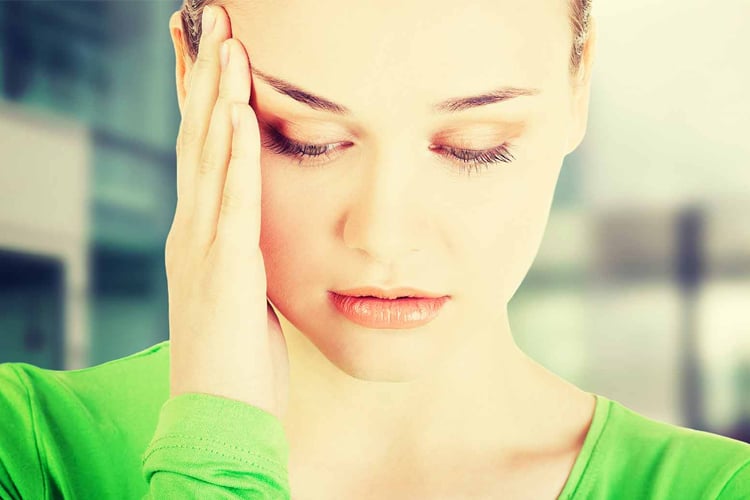
This is called a full-blown anxiety attack- A devastating disorder that needs to be nipped at the bud.
But how?
Let’s know the cause first:
Causes:
First of all, relax and calm down.
Now you know what anxiety does. But why does it occur? There are many reasons that cause anxiety. Let us explore them.
- Stress (and stressful events in childhood and adulthood)
- Life experiences which are traumatic
- Hormone Imbalance
- Thyroid problems
- Excess of alcohol intake
- Excess of sugar or caffeine
- Family history of mental health disorders
- Limited economic resources/monetary backing
- Being shy in childhood
- Physical and physiological symptoms (e.g. digestive problems, irritability, sweating, restlessness, not being able to socialize with family/peers, difficulty in concentrating, insomnia, high BP, heart palpitations, etc.)
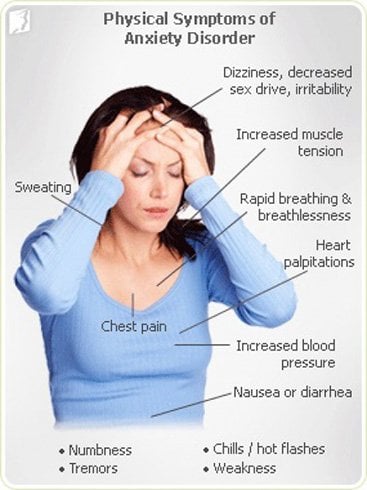
Scared, are you?
Count on home remedies to get away from anxiety attacks.
Home Remedies for Anxiety Attacks:
Here we go!
1. Chamomile:
What all you need: 2-3 tsp of dried Chamomile, and hot water
Directions:
- Steep dried chamomile in a cup containing hot water for 3 minutes
- Now strain it
- Add honey and cinnamon to it (optional)
- Drink this tea few times a day for a month (depending on the nature of your anxiety attack) for improvement to happen
How it works: Chamomile has two chemicals – apigenin and luteolin that promote relaxation. Taking chamomile supplements for 8 weeks brings a significant decrease in anxiety symptoms (according to a study done at the University of Pennsylvania Medical Center).
Tip: You can take Chamomile herb in ‘supplement’ form. For Adults, 400 to 1600 mg capsules in divided doses daily, or 1 to 4 ml of liquid extract three times a day.

2. Green Tea:
What all you need: Green tea (in ‘bag’ or ‘powdered’ form)
Directions:
- Boil 2 cups of water
- Now add 4 drops of lavender essential oil to it
- Time to inhale the steam (this will ease out anxiety)
How it works: Lavender is bound to bring in relaxation and relieve you from depression. It also brings a calming and soothing effect on the nervous system.
Tip: As an option, mix 3-4 drops of lavender oil in 1 tsp almond oil, olive oil (or any base oil). Then massage this oil on your neck, shoulders and back daily or a few times a week for your condition to improve.
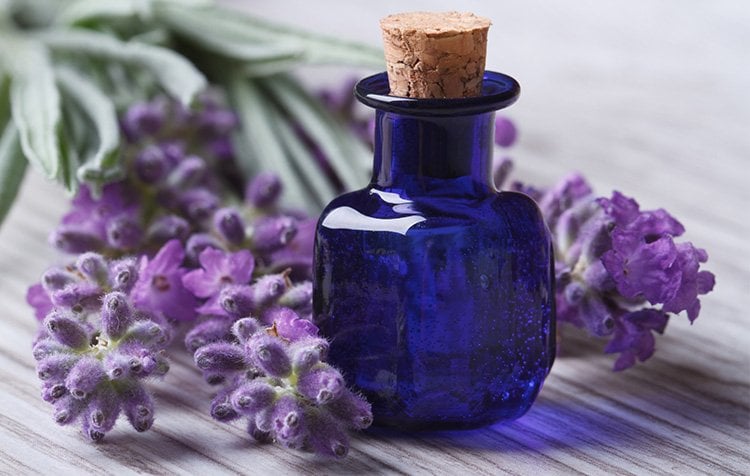
4. Epsom Salts Bath:
What all you need: 1-2 cups of Epsom salt, and bathtub with warm water
Directions:
- Add Epsom salt in a bathtub filled with warm water
- Now soak yourself in this bathtub for 15 to 20 minutes
- Pat yourself dry
- Keep repeating this from time to time to get relief from anxiety attacks
How it works: Epsom salt has magnesium in it which helps deal with anxiety and depression. It soothes and relaxes the nerves, and helps get rid of toxins.
5. Arctic Root:
What all you need: Rhodiola rosea plant
How it works: Arctic Root is another name of Rhodiola rosea (a Siberian plant), known to reduce stress levels and bring a decrease in situational anxiety. It is a traditional Chinese medicine.
Tip: Take it on an empty stomach 30 minutes or more before breakfast and/or lunch (for best absorption). Never take it late in the day as it can interfere with your sleep.
6. Ashwagandha:
What all you need: Ashwagandha (in powder form)
Directions:
- Take at least 300 mg of Ashwagandha twice a day for minimum 2 months to get the full benefits of this natural remedy.
How it works: ‘Smell of Horse’ Ashwagandha is stress-relieving which reduces the effect of stress hormone ‘cortisol’ by 25 per cent. So if you feel depressed, tired or lack motivation, try out Ashwagandha.
Tip: You can also drink the powder form of Ashwagandha in hot milk during night time.

7. Kava:
What all you need: Kava
How it works: Kava is a medicinal plant from the South Pacific region. It is one of the most potent natural remedies for anxiety made from the root of the pepper plant.
Tip: Kava comes in many forms – tea, powder, capsule, and liquid. It is for you to decide and use. But remember, the daily intake of Kava (in any form) should not exceed 250 mg.
8. Valerian Root:
What all you need: Valerian Root itself
Directions:
- In tea form, take 2-3 gms of valerian root (dried) in 1 cup hot water for 10-15 minutes
- Alternatively, take 300 to 600 mg of valerian root 30 minutes to 2 hours before bedtime. This is best for insomnia or sleep trouble.
How it works: Valerian has been used for centuries as an herbal remedy. It cures insomnia and nervous tension caused by anxiety.
Tip: Don’t take Valerian root for more than a month (without talking to your doctor).
9. Holy Basil Tea:
What all you need: Leaves of holy basil (Tulsi)
Directions:
- Brew a fresh cup of Tulsi tea by boiling the basil leaves in water
- Sip it
How it works: Basil is one of the traditional methods to treat anxiety. It has anti-stress agents which promote health throughout the entire body.
Tip: As an option, munch on few basil leaves or drink basil tea once or twice a day.
10. Lemon Balm Tea:
What all you need: 1 tsp dried lemon balm, hot water
Directions:
- Steep dried lemon balm in hot water for about 10 minutes
- The tea pot should be covered in order to prevent the aromatic oils from escaping
- Now drink this tea preparation every night before going to sleep (non-stop for two weeks)
- Avoid using this herb in excess as it can make you more anxious.
How it works: Belonging to the ‘mint’ family, lemon balm is a mild-relaxant and nerve tonic. It has been used since ages to reduce anxiety, promote sleep and improve appetite.
Tip: You can also take this herb in supplement form – 400 mg capsules twice daily (but only after consulting your doctor).
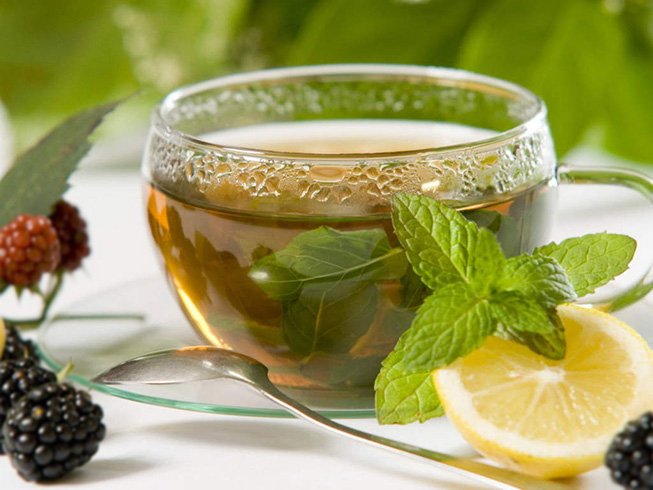
11. Water Therapy:
What all you need: 1/3 cup of baking soda and ginger (each), bathtub filled with warm water
Directions:
- Mix baking soda and ginger in a bathtub containing warm water
- Soak yourself in it for 10 to 15 minutes
How it works: Hot water baths, as you know, have relaxing properties which provide relief from anxiety and stress.
Tip: You can also add 5-7 drops of an aromatherapy essential oil (for instance, chamomile oil, lavender oil, ylang ylang oil, geranium or bergamot oil, along with an ounce of carrier oil like jojoba oil, to your bath water) before soaking yourself in it.
Other than these, some more natural treatments for anxiety attacks are:
12. Exercise:
What all you need: Regular exercise
How it works: Doing exercise is good for relieving stress. In fact, cardiovascular exercise helps in lowering stress levels and anxiety (apart from improving the immune system).
Tip: It takes just 21 minutes of exercise to reduce anxiety symptoms reliably. So do it daily.
13. Hold Your Breath:
What all you need: Your nose (nasal system)
Directions:
- To do that, take a long, slow breath in through your nose (the idea being to first fill in your lower lungs, then your upper lungs).
- Now hold your breath to the count of “three.”
- Exhale slowly through pursed lips (as you relax your face, jaw, shoulders, and stomach muscles).
How it works: You can reduce the extent of your anxiety and anxiety symptoms by using breathing exercises.
14. Eat Something, Quick:
What all you need: Invest in whole-foods, plant-based diet. Include meat and seafood, leafy greens (such as kale), and some phytonutrients
How it works: Eating (remember healthy eating) can have a great impact on reducing anxiety. Surrounded with negative emotions (without any reason)? It means you need to eat something. FAST!
Tip: A quick snack – a handful of walnuts, or a small piece of dark chocolate, along with a glass of water or a nice cup of hot tea can help shoo away anxiety.
15. Eat Breakfast:
What all you need: Foods that have proteins and carbohydrates
How it works: Our night sleep lasts 7 to 8 hours (on an average). The morning next our blood sugar levels are going to be ‘low’. It takes our body levels to adjust 20 min, after one has had breakfast. Which is why, eating breakfast is so very important.
Tip: Include eggs in breakfast. They get you proteins.
16. Natural Sunlight:
What all you need: Sit or soak yourself in the sun (preferably in the morning hours)
How it works: Don’t run away from Sunlight. It is the best way in which you can increase your vitamin-D levels in your body naturally. This helps decrease symptoms of depression and anxiety. Did you know a 15-minute break helps you take your mind off stress?
Tip: Fear sun tan on the thought of going natural sunlight? Apply sun tan on your face and body.
17. Relaxation:
How it works: Reserve half an hour every day in doing an activity that relaxes you the most. It could be reading, gardening, taking a walk, catching up with neighbors etc.
18. Get Plenty Of Sleep:
How it works: Lack of sleep can put extra stress on your brain and body. Try to get 7-9 hours of sleep (and quality sleep) every night.
Tip: Taking short naps of 20 minutes to half an hour in the afternoon helps
19. Massage Your Muscles:
What all you need: An essential oil of your choice
Directions: Massage your body (self or by a trained professional) before taking your morning bath or at night before going to sleep
How it works: When you massage your body (more importantly your neck, shoulders, back and the bottoms of your feet), you will experience a lot of relaxation and anxiety-relief.
Tip: For the right type of body massage to happen, pick any massage oil or sesame, sunflower, coconut or corn oil. To get best results, use 6 to 7 ounces of the oil of your choice after heating it slightly.
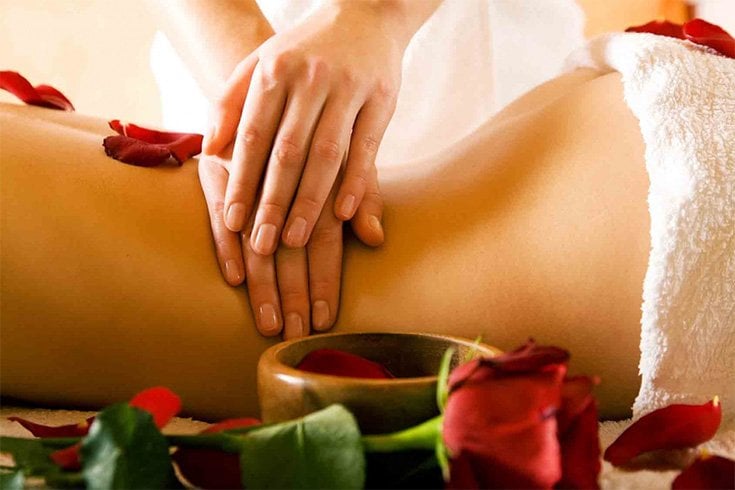
Other than these home remedies, there are some more headache treatments:
- Chiropractic Care & Posture: Medication, counseling, lifestyle changes and chiropractic care provides a way to manage the anxiety and headache symptoms (without causing the harmful side effects of medication).
- Stretching and Moving: A body stretch from head to toe to brisk movement (lets say in your house, park, building etc.) can occupy or divert your mind from anxiety and the headache that follows
- Detox Bath: A detox bath is a natural recipe that works for stress and anxiety. Options include – Epsom salt detox bath, hydrogen peroxide bath, baking soda bath and bath with apple cider vinegar.
- Acupuncture: This is a traditional Chinese treatment to overcome anxiety, depression, and other health conditions.
- Massage: Stress can make muscles tight and tense. This is where massage therapy comes in. It relieves muscle tension and promotes blood flow to vital areas of the body in order to release stress and anxiety.
- Yoga: It is one of the Top 10 alternative practices which come in handy to treat variety of disorders. And that includes anxiety and depression.
Any dietary changes when one is down with anxiety? Yes, and plenty of it.
Diet for Anxiety Attacks:
- Vitamin B Foods: Deficiency in Vit B can lead to panic and anxiety attacks. Overcome it by consuming the following Vit B foods – Vit B 12 (found in wild salmon, halibut and shrimp, beef liver, lamb, eggs and yogurt); Vit B 6 (found in chicken, turkey, tuna, shrimp, beef liver, cheese, beans, spinach, carrots, brown rice and sunflower seeds) and Vit B 9 or Folic acid (found in spinach and other green leafy vegetables, asparagus, turnips, beets, Brussels sprouts, avocadoes, beans, beef liver, salmon, and orange juice)
- Dairy or Calcium Rich Foods: When you increase your calcium intake, you are bound to be on the safer side from anxiety. Go in for milk and dairy products, soy milk, etc, but avoid taking excess of calcium.
- Magnesium Foods: Whole grains are rich in magnesium and tryptophan, an amino acid which gets converted to serotonin in your body, and is known to calm and improve your mood.
- Omega-3 Fatty Acids: Fish oils are good for the heart. They also protect against anxiety and depression. Which is why oily, cold-water fishes (like salmon) are the best sources of the fatty acids.
- Oats: Loaded with fiber, Oats increase serotonin production. This helps prevent blood sugar spikes that affect mood.
- Fruits like Blueberries and Peaches: Keeping the taste aside, Blueberries and peaches have nutrients that bring you relief from stress. They also give a calming effect.
Blueberries have a variety of antioxidants, vitamins and phytonutrients (plant nutrients), which are considered extremely beneficial for relieving stress.
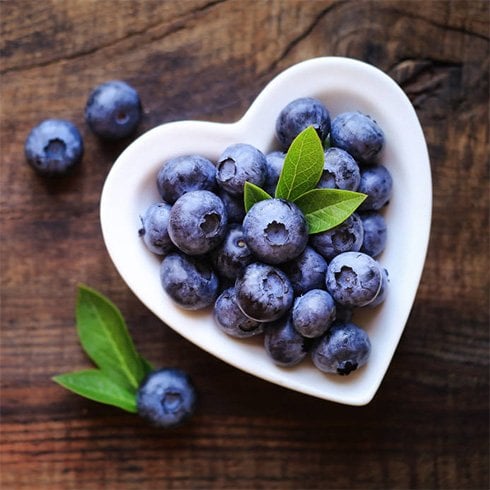
- Avoid Caffeine, High Sugar foods, alcohol, processed foods: Your morning cuppa coffee might help get you out of bed, but it can reduce your ability to handle anxiety. The same applies to consuming foods which are processed and containing high sugar, and alcohol. In fact, alcohol and nicotine can make anxiety symptoms worse and more frequent.
Indulge in dark chocolate once in a while. It helps lower cortisol, that’s why.
Tips:
Anxiety occurs in the event of stress. While conventional treatments are there, natural remedies offer alternative therapies which are not only effective, but also cause no side effects.
Most of you might have gone through an anxiety phase. How did you overcome it? Ever used natural remedies? Write in and tell us.
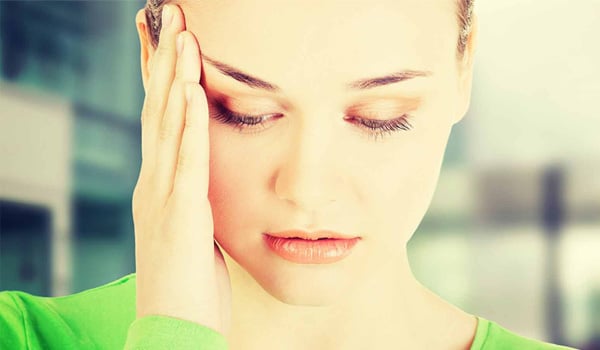
4 comments
When should I go for Medical help?
Seeking medical help comes into the picture when the person is usually healthy and panic attacks is not on their health history ever. (or rarely)
Can you please explain what is the difference between generalized anxiety disorder and normal anxiety disorder?
Generalized Anxiety Disorder is characterized by a constant, unrealistic worry about everyday things. Where you get worked up for the smallest of things on a daily note. Whereas normal anxiety disorder is getting stressed for certain situations that require it, and some uncertain situations.